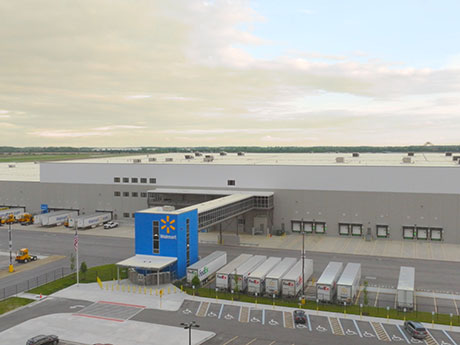By Anthony Sanna, Integra Realty Resources
The commercial real estate (CRE) market is facing a time of uncertainty and anxiety as we move further into 2023. A variety of factors are contributing to investor sentiment being low, including the threat of higher interest rates impacting commercial loans, fears of a declining CRE market, and concerns about recessionary pressures, inflation and a liquidity crisis currently taking shape. The question on everyone’s mind is where values are going and what trends we can expect in the coming months.
Signs of a softening market
National data analytics firms are already reporting a 10 percent value decline across most asset classes, except for industrial real estate. While this indicates there is downward pressure on pricing, it’s important to remember that appraisal data is somewhat backward-looking and may lag behind current pricing trends. Additionally, tracking recent transactions from six to nine months ago may not represent the boots on the ground experience happening at this very moment. Admittedly, appraisers are rear-view mirror-focused (tracking transactions) while the actual market is windshield-focused (future transactions).

Despite this, recent examples in daily work indicate a downward pricing trend. Recent purchase contracts have been re-traded and amended, often with lower prices (sometimes 5 to 15 percent down) to close a deal. Likewise, deals falling out of contract suggest downward pricing pressure as buyers are unwilling to close at the original price and terms. The credit freeze also adds to the downward pressure, with many lenders being much more conservative in their underwriting, resulting in stricter loan terms.
Cap rates, loan renewals
Cap rates are intuitively trending upward, with higher cap rates resulting in lower property values. As mortgage rates rise, cap rates eventually do as well. However, there are fewer transactions to prove cap rate increases, as buyers and sellers are currently disconnected, resulting in low transaction volume. This standstill is making it difficult to prove increasing cap rates as the transactions proving this trend have stalled.
Meanwhile, the 10-year Treasury Bill is back down to a 3.5 percent yield compared with six months prior. Many commercial mortgage rates are based off of this rate, which may provide an opportunity for participants to jump in and take advantage of a rate reprieve in the midst of all this uncertainty.
Commercial mortgages are often structured on five-year renewal terms, and a high percentage of current loan expirations have some issue or challenge. The old mortgage rate from five years ago versus current renewal rates is much higher, making it challenging for borrowers to meet other loan covenants like the debt service coverage ratio due to the higher interest rate. This can make loan renewals difficult, even if the property is performing well.
New construction woes
New construction also faces its own set of challenges, including but not limited to construction costs increasing due to inflationary pressures, labor costs rising due to inflationary pressures, and capital costs increasing due to higher interest rates. These factors create a trifecta that is not favorable for realizing a profitable return on the end development.
Additionally, fears of recessionary pressures could mean more unemployment, falling rental rates, increased vacancy rates, etc. All of these would have downward pressure on property values. As a result, many developers are putting pencils down relative to new and proposed projects that have not yet broken ground, as the risk levels are too high to move forward in many markets.
Some real estate sectors are experiencing greater variations than others. For instance, the office market is experiencing a turbulent year, particularly in central business district locations. While more employees are returning to the office, work-from-home is still a popular option among workers. Lease renewals from expiring tenants show less space being taken in many instances, with tenants downsizing and reduced demand for space. Musical chairs are also happening as tenants relocate to better buildings, leading to a flight to quality.
Looking ahead
Looking ahead, the state of the economy, continued interest rate increases, technological advancements, and demographic shifts are likely to shape the commercial real estate market in the coming years. The aging population may lead to increased demand for healthcare facilities, while the growth of the younger generation may drive demand for more flexible, collaborative workspaces.
Commercial real estate professionals should also be mindful of potential market disruptors, including artificial intelligence (AI). This technology has the potential to make a positive impact on the industry, allowing for smarter decision making, as AI can analyze large amounts of data in real-time and provide insights to help CRE owners, developers and investors make better decisions. AI can also be used to help automate various aspects of the industry, including real estate transactions, tenant communications and streamlined property management.
However, there are also some challenges. For example, AI-powered tools may not always be able to capture the nuanced factors that go into property valuation or decision making. Additionally, there may be concerns around data privacy and security.
Environmental factors may also have an impact on commercial real estate values. Climate change and natural disasters can cause significant damage to properties, leading to decreased value or even rendering them uninhabitable. As a result, developers and property owners may need to invest in more resilient building design and construction methods to mitigate potential risks.
Despite the uncertain future, by staying informed, being adaptable and recognizing market shifts, commercial real estate professionals and their clients can position themselves to take advantage of opportunities and mitigate potential risks. By keeping an eye on market trends and emerging disruptors, market leaders can anticipate the needs of tenants and investors by making smart, informed decisions. In this dynamic and ever-changing market, knowledge and agility are key to success.
Anthony Sanna, MAI, CRE, is the executive director of Integra Realty Resources’ Detroit office. This article originally appeared in the July 2023 issue of Heartland Real Estate Business magazine.


